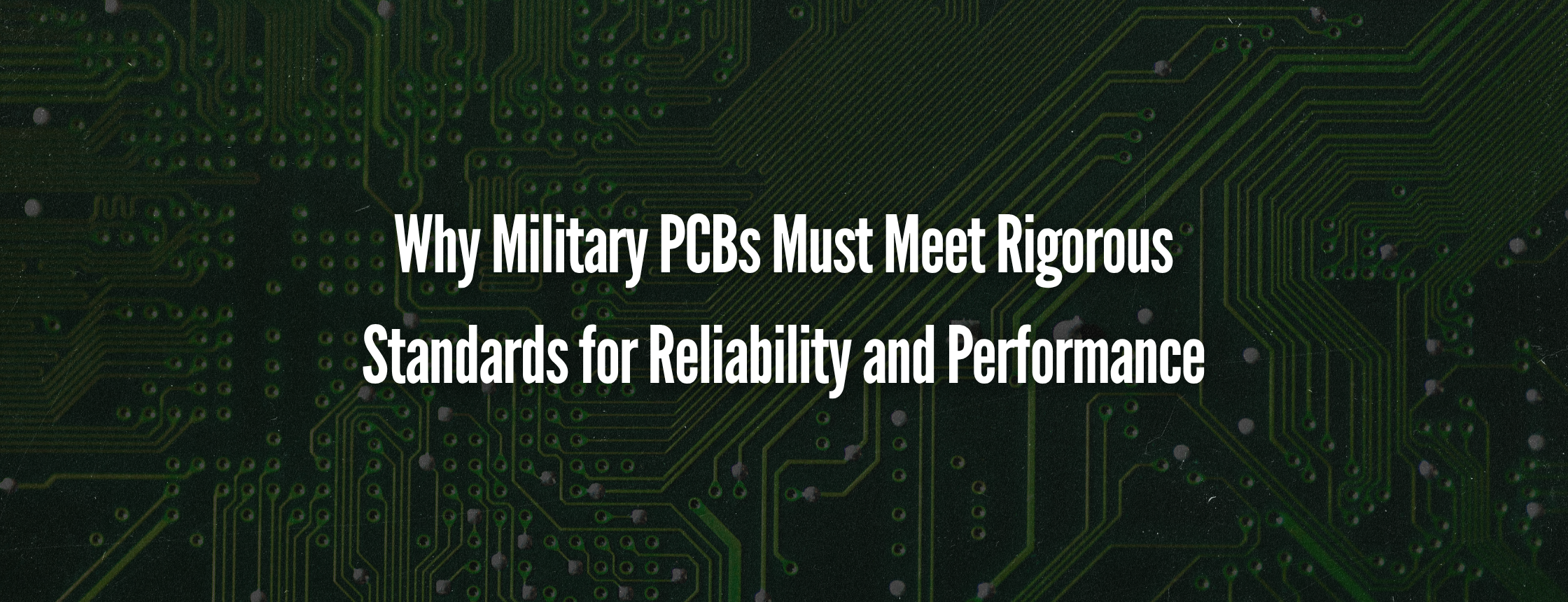Why PCB Certifications Matter: Understanding AS9100D, MIL-PRF-31032, ISO, UL, and IPC Standards
Printed Circuit Boards (PCBs) are the backbone of modern electronics, ensuring seamless connectivity and reliable performance. A PCB’s surface finish is a key factor that influences its durability.
Printed Circuit Boards (PCBs) are the foundation for nearly every modern electronic device, from medical equipment to aerospace technology. Ensuring PCBs’ quality, safety, and reliability is crucial, which is why industry certifications play a significant role. Certifications such as AS9100D, MIL-PRF-31032, ISO, UL, and IPC set stringent standards manufacturers follow to produce high-performance, durable, and compliant PCBs. Understanding these certifications can help businesses select the right manufacturing partner and ensure their products meet industry regulations.
What Are PCB Certifications and Why Do They Matter?
PCB certifications provide standardized guidelines that manufacturers adhere to for quality control, safety, and compliance. These certifications help ensure that:
- PCBs meet required performance and durability standards
- Products comply with international regulations and industry requirements
- Electronic components function safely in various applications
- Customers receive high-quality and reliable circuit boards
With electronic devices becoming increasingly complex, regulatory bodies require manufacturers to follow these certifications to mitigate risks, improve reliability, and meet global trade requirements.
Understanding AS9100D and MIL-PRF-31032 in PCB Manufacturing
Why AS9100D Certification Matters
Achieving AS9100D certification demonstrates a PCB manufacturer’s ability to meet the highest quality, safety, and reliability standards required for mission-critical applications.This certification is vital for businesses serving aerospace and defense markets, ensuring:
- Enhanced Quality Controls – Strict documentation, traceability, and process control minimize defects and improve product reliability.
- Regulatory Compliance – AS9100D aligns with FAA, DoD, and NASA requirements, making it essential for government contracts.
- Risk Management and Continuous Improvement – The standard emphasizes proactive risk assessment and corrective actions to enhance long-term operational efficiency.
- Supply Chain Credibility – Many aerospace OEMs and Tier 1 suppliers require AS9100D certification for approved vendors.
Because AS9100D certification includes ISO 9001 by default, manufacturers holding this certification not only meet general industry standards but also exceed them with specialized aerospace-specific requirements.
MIL-PRF-31032: Military Performance Standards for PCBs
For manufacturers producing printed circuit boards for military applications, MIL-PRF-31032 is a crucial certification. This performance specification defines the stringent quality and reliability requirements for PCBs used in defense systems, ensuring they can withstand extreme environments and operational stresses. Key Aspects of MIL-PRF-31032 Certification include:
- Material and Process Verification – Ensures that raw materials and production techniques meet strict military specifications.
- Reliability Testing – Mandates rigorous testing for thermal resistance, mechanical durability, and electrical performance.
- Traceability and Documentation – Requires comprehensive record-keeping for every PCB manufactured, critical for defense and aerospace applications.
- Performance-Based Compliance – Unlike traditional manufacturing certifications, MIL-PRF-31032 focuses on the actual performance of the final product rather than just process adherence.
ISO 9001: Quality Management Systems
ISO 9001 is one of the most widely recognized certifications in the PCB industry. This standard focuses on quality management systems (QMS) and ensures that manufacturers follow a structured approach to:
- Improve product consistency
- Enhance customer satisfaction
- Implement continuous improvement processes
Manufacturers with ISO 9001 certification demonstrate their commitment to maintaining high-quality production standards and improving operational efficiency.
The Role of UL Certification in PCB Safety
Underwriters Laboratories (UL) certification is critical for PCBs in high-risk applications such as industrial automation, automotive, and aerospace electronics. UL certification ensures that PCBs meet strict fire, electrical, and mechanical safety standards.
Key UL Certifications for PCBs
- UL 796: Covers the safety of printed wiring boards (PWBs) and evaluates their ability to withstand electrical and environmental stress.
- UL 94: Focuses on the flammability of plastic materials used in PCBs, ensuring fire-resistant properties.
- UL 60950/UL 62368: Applicable to information technology and audio/video equipment to ensure electrical safety and protection against overheating.
A UL-certified PCB manufacturer provides an added safety assurance layer, ensuring products comply with industry standards and regulatory requirements.
IPC Standards: Ensuring PCB Reliability and Performance
IPC (Institute for Printed Circuits) is a globally recognized association that develops performance and acceptability standards for PCBs. IPC standards cover various aspects of PCB design, assembly, and inspection.
Key IPC Standards in PCB Manufacturing
IPC-A-600: Acceptability of Printed Boards
This standard provides a detailed visual inspection guide to determine PCB quality levels. It classifies PCBs into three categories:
- Class 1: General electronic products (e.g., consumer electronics)
- Class 2: Dedicated service electronic products (e.g., industrial electronics)
- Class 3: High-performance electronic products (e.g., medical and aerospace applications)
IPC-6012: Qualification and Performance Specification for Rigid PCBs
This standard defines rigid PCBs’ qualification and performance criteria, covering aspects like material properties, solderability, and thermal endurance. Manufacturers adhering to IPC-6012 can ensure that their boards meet high-performance demands.
IPC-A-610: Acceptability of Electronic Assemblies
IPC-A-610 is a widely used standard for assessing PCB assembly quality. It provides guidelines for:
- Solder joint acceptability
- Component placement criteria
- Inspection and reliability requirements
PCBs built to IPC-A-610 standards enhance product longevity and reduce the likelihood of defects in the field.
Why Businesses Should Choose a Certified PCB Manufacturer
Selecting a PCB manufacturer with MIL-PRF-31032, AS9100D, ISO, UL, and IPC certifications offers several advantages:
- Higher product reliability: Ensures compliance with rigorous quality and performance standards.
- Regulatory compliance: Reduces risks associated with non-compliant products in global markets.
- Improved safety: Minimizes electrical failures and fire hazards through UL certification.
- Environmental responsibility: Supports sustainable manufacturing through ISO 14001 compliance.
- Industry-specific assurance: Aligns with sector-specific requirements, such as ISO 13485 for medical applications.
Choosing the Right PCB Partner
Businesses seeking high-quality, reliable, and compliant PCBs should prioritize manufacturers with industry certifications. MIL-PRF-31032, AS9100D, ISO, UL, and IPC standards ensure product quality, safety, and regulatory adherence. Midwest Printed Circuit Services follows stringent industry standards to provide customers with dependable circuit board solutions tailored to their application needs.
For more information about certified PCB solutions, contact Midwest Printed Circuit Services to discuss your requirements and explore high-quality manufacturing options.









